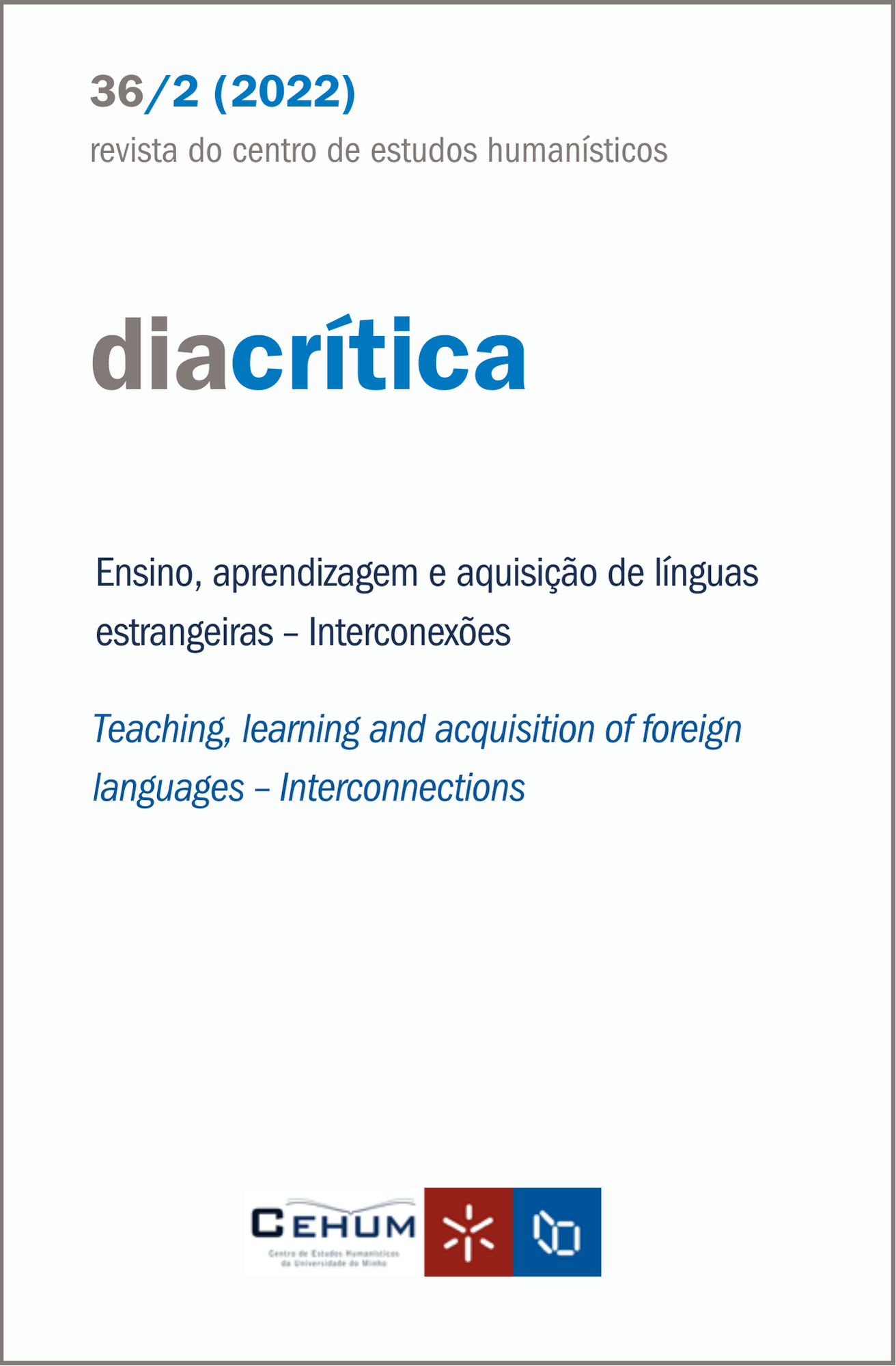O texto literário como recurso didático para o ensino-aprendizagem de PLE: pressupostos, desafios e propostas
DOI:
https://doi.org/10.21814/diacritica.4819Palavras-chave:
Português Língua Estrangeira, Texto literário, Autores lusógrafos, Didatização, Poesia, Fernando SylvanResumo
O português é a língua usada por uma vasta comunidade de autores de todo o espaço lusófono para a criação das suas obras literárias. Deste modo, o texto literário afigura-se como um recurso particularmente útil para o processo de ensino-aprendizagem de Português Língua Estrangeira (PLE), porquanto permite o contacto natural e autêntico com este idioma pluricêntrico, evidenciando a sua diversidade ao nível linguístico e cultural. No plano linguístico, os textos literários lusógrafos permitem dar a conhecer as distintas variedades do português; no plano cultural, abrem amplas perspetivas de conhecimento e de reflexão, recusando o etnocentrismo. Neste artigo, sintetizam-se alguns pressupostos teóricos relativos ao uso do texto literário para a aprendizagem de PLE, reflete-se sobre os desafios que tais textos colocam e apresentam-se sugestões didáticas para a sua inclusão na prática docente, a partir de um poema do autor timorense Fernando Sylvan.
Referências
Conselho da Europa. (2001). Quadro Europeu Comum de Referência para as línguas. Aprendizagem, ensino, avaliação. Edições ASA.
Cristóvão, F. (Dir., Coord.). (2005). Dicionário temático da lusofonia. Texto Editores.
Luscher J.-M. (2009). L’enseignement de la littérature selon la perspective actionnelle. Que pourrait être une «tâche littéraire»?. Le français à l’université, 14(2). http://www.bulletin.auf.org/index.php?id=835
Martín Peris, E. (2000). Textos literarios y manuales de enseñanza de español como lengua extranjera. Lenguaje y textos, 16, 101–129.
Núñez Sabarís, X. (2019). Enseñar Literatura en la Universidad del Siglo XXI. De la lección a la unidad didáctica en tres clásicos hispânicos del XX. ACCI ediciones.
Ogando González, I. (2018). Confluências em português língua segunda/língua estrangeira/língua de herança. Diacrítica, 32(2), 211–237. https://doi.org/10.21814/diacritica.438
Puren, C. (2020). La littérature dans une perspective actionnelle: une approche intégrative des différentes logiques documentaires. Cahiers FoReLLIS - Formes et Représentations en Linguistique, Littérature et dans les arts de l'Image et de la Scène. Université de Poitiers.
Ramon, M. (2014). Contributos para a constituição de um cânone lusófono: Timor-Leste no contexto da produção literária em língua portuguesa. In M. L. Martins, R. Cabecinhas, L. Macedo, & I. Macedo (Eds.), Interfaces da Lusofonia (pp. 61–69). Universidade do Minho, CECS.
Sanz Pastor, M. (2006). Didáctica de la literatura: el contexto en el texto y el texto en el contexto. Carabela, 59, 5–23. https://cvc.cervantes.es/ensenanza/biblioteca_ele/carabela/ pdf/59/59_005.pdf
Sequeira, R. M. (2003). O Poder e o desejo. O ensino da literatura a estrangeiros na universidade. Ministério da Educação.
Xavier, L. G. (2019). Ler textos literários em aula de PLE. Alguns pressupostos e interrogações. Diacrítica, 33(3), 113–121. https://doi.org/10.21814/diacritica.457
Downloads
Publicado
Como Citar
Edição
Secção
Licença
Direitos de Autor (c) 2023 Macaela Ramón

Este trabalho encontra-se publicado com a Creative Commons Atribuição-NãoComercial 4.0.










